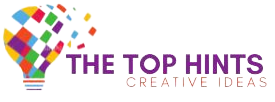7 Pointers to How Technology Impacts HR Operations

How we do business has been undergoing a series of metamorphoses, and recent technology has defined and shaped how we conduct business. Technology is revolutionising business relations from either vertical perspective, geographical and human resources have not lagged. It isn’t easy to come across any organisation that is not undergoing a massive digitisation process; human resource departments in many companies witness and experience enormous benefits derived from integrating technology in their operation and strategies. Artificial intelligence is one aspect of technology that is doing marvellous work regarding human resources in various workplaces.
Some of the predominant work challenges that were present in previous decades are getting tackled by this technology. Artificial intelligence has become quite impactful on how human resource professionals conduct their hiring, training, and assessing various capabilities amongst their work pool. Technology has proved beneficial in improving several aspects of human resource functions, including the onboarding process, recruitment, self-service transactions, and earning and development.
Some key areas or pointers demonstrate the massive impact of technology, especially when integrated with human resources operations. Software applications such as best aged care software are at the forefront in the digitisation of HR processes. The following seven are some of how technology is transforming workplaces, especially in employee management.
- Remote working facilitation
With pandemic ravaging, the entire global workplaces shifted from physical structures to remote, cloud-based environments. With technology being at the centre of its all, employees can now connect and collaborate through virtual environments and deliver quality work on time. Human resources have been able to monitor processes more efficiently through the aid of artificial intelligence. Similar measuring productivity has also been demystified.
- Enhanced and simplified employee recruitment
The human resources department was previously required to go through a heap of paper in the form of resumes trying to gather the right candidate’s data. All that has been digitised and simplified by technology as organisations are not in a position to auto fetch candidates’ data. Such simplification reduces data duplication and saves the time and energy required to go through unnecessary paperwork.
Technology is also beneficial in today’s workplace recruitment as candidates get matched with their job—roles remotely based on their personal and professional experiences. Conduction of psychometric tests has been of great success in assessing the temperaments of their hires.
- Onboarding process streamline
One game charger in the onboarding process for the recruits is the introduction of chatbots. This technology allows the recruits to update their personal and professional information and get answers to some queries they might be having about the organisation and their role.
Chatbots also provide new employees with some helpful information that they might need during their initial days. With artificial intelligence, recruits can get the necessary advice on how to go about various places, access to web pages, and the training modules required to undertake.
- Intelligent/informed decision-making process
Technology has brought about the level ground, especially when recording and analysing employees’ skill set levels, queries, requirements, and feedback on a specific issue. Similarly, when an organisation wants to get the overall sentiments towards the organisation, it can leverage technology to get the best view of it.
Artificial intelligent assists such organisations in making smart decisions that can get classified as meaningful. Unlike human machines rarely make biased decisions that tend to deny others opportunity particularly during recruitment and appraisals.
- Improved communication within the organisation
One issue that can boost employee morale is the lack of proper communication channels, especially with the management. A chatbot can mimic the human tone and address some of the issues of concern to employees. A single chatbot can fee up an entire human resources team from the pain of analysing and responding to queries raised by their staff.
- Enhance personalised staff engagement
Technology such as artificial intelligence can gather real-time customer insights and confidently share such information with the relevant HR departments. Such aspects allow human resources to interact and handle critical matters at a personalised level. Consequently, organisations are now in a more advantageous position to map their employees and various competency levels.
- Modernisation of earning and programmer’s development
Lately, organisations value skilled labour force and regularly conduct and facilitate agile earning by introducing various programs within the company. Such career developments get significantly reduced by technology such as artificial intelligence in achieving such goals. With artificial Intelligent chatbots, organisations can achieve accurate learning models that are collaborative and effective.
Consequently, to make learning fun, organisations are adopting gamification in their module and Programme development to make the engagement fun. Such aspects increase the aspect of engagement, boosting employee’s productivity double folds.
Therefore, it’s now a requirement that organisations must amalgamate intelligent technology in their human resources department; otherwise, they will only get left behind with a crude human resources department that is hard to manage.
